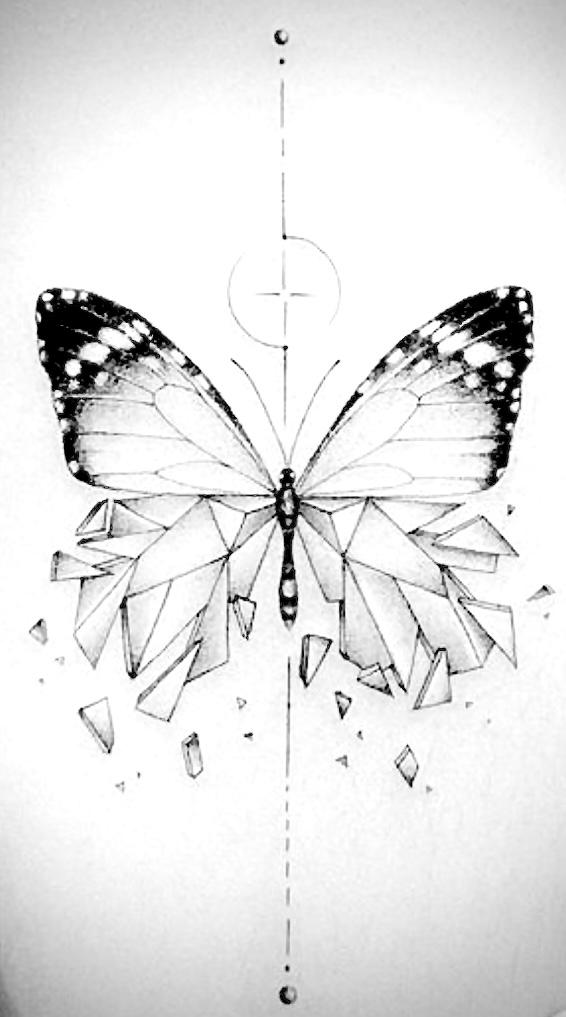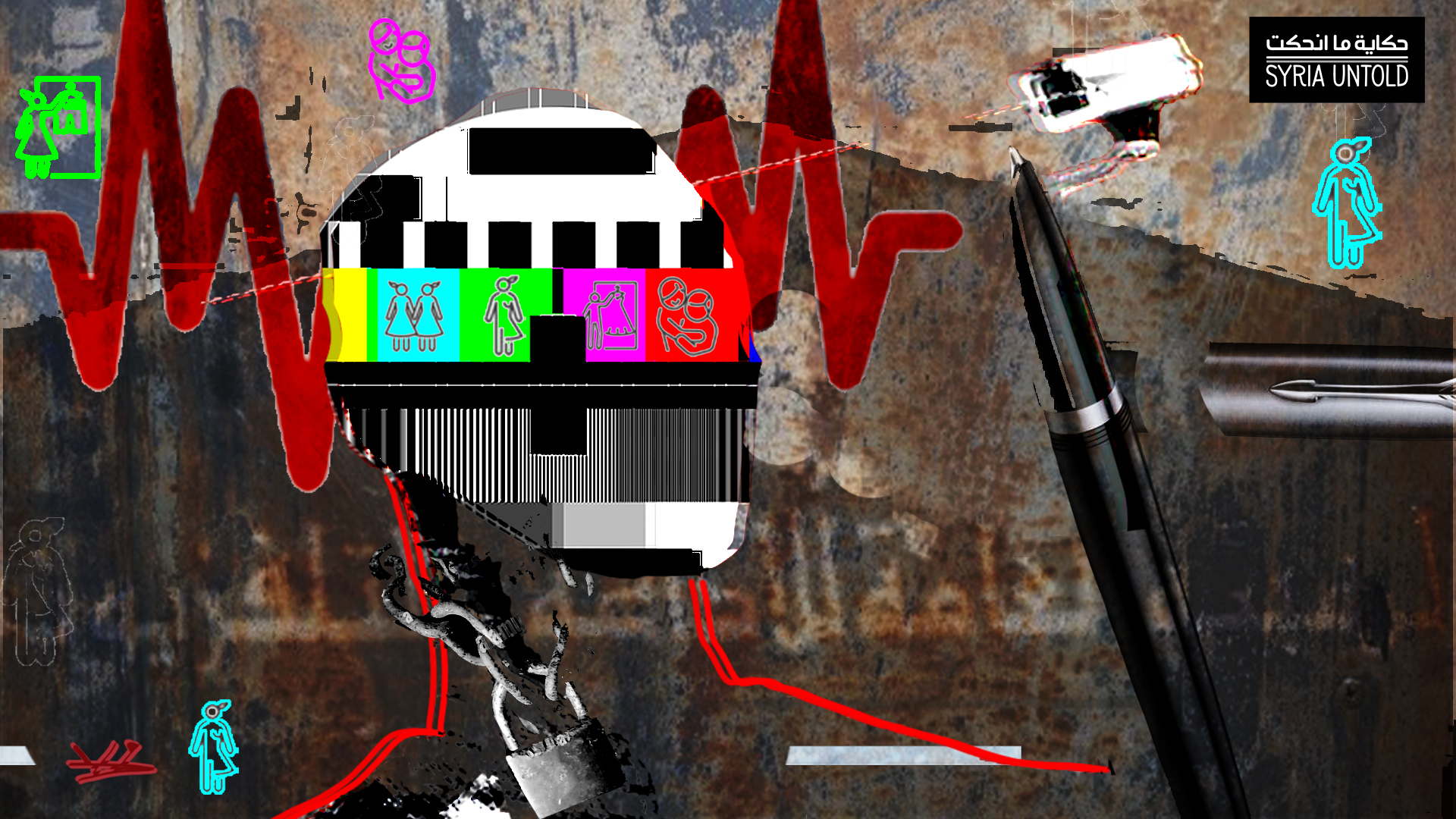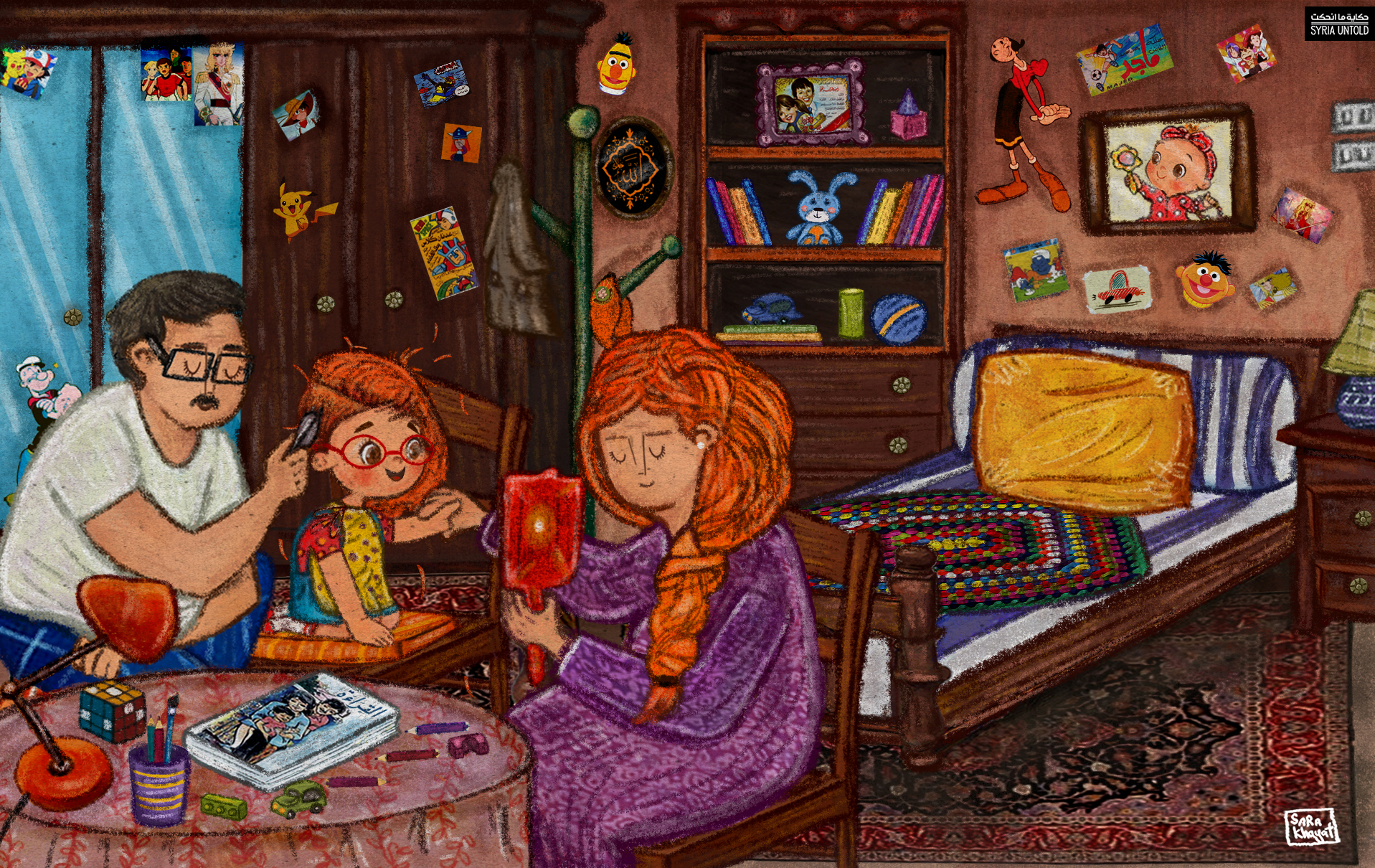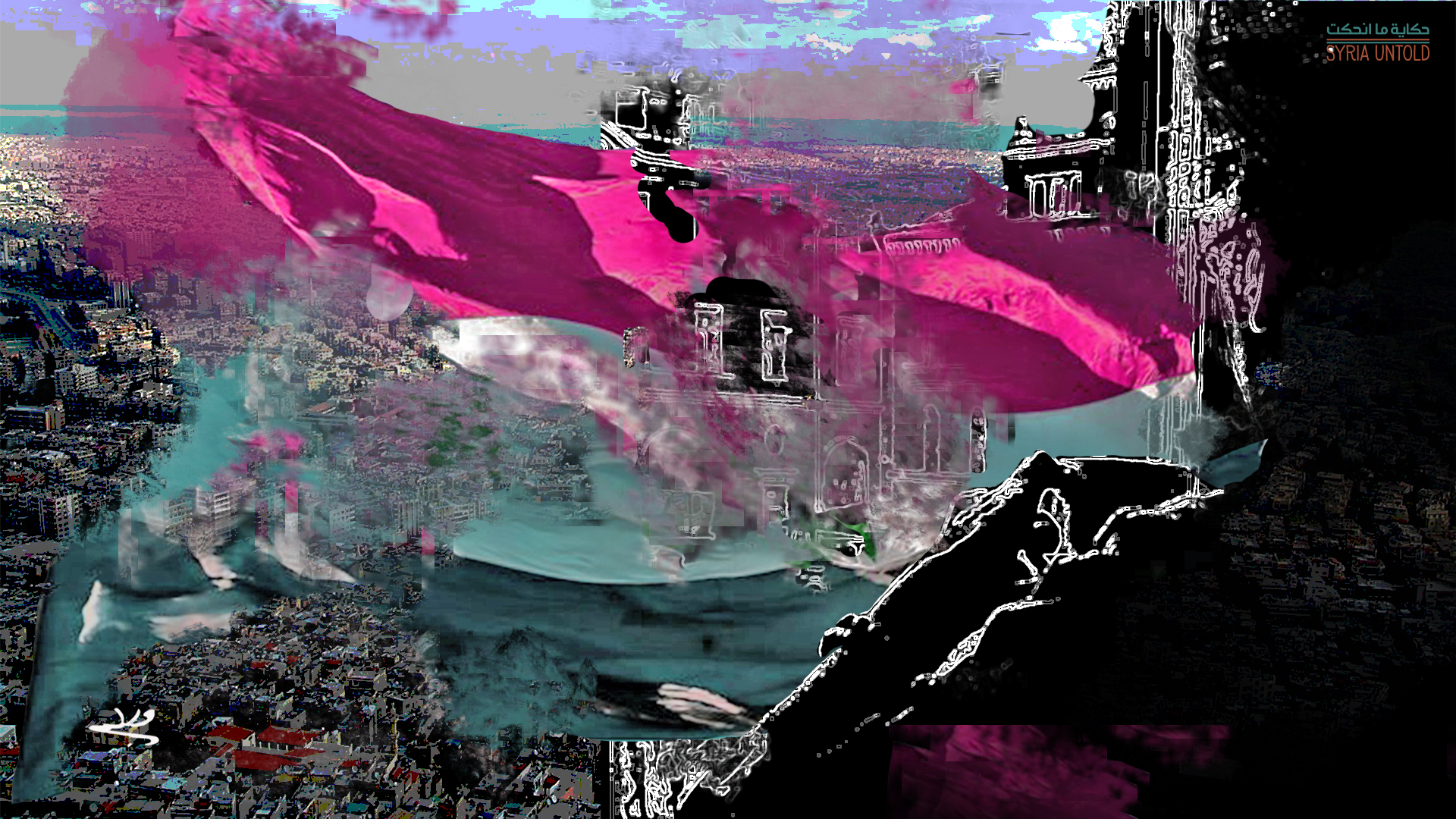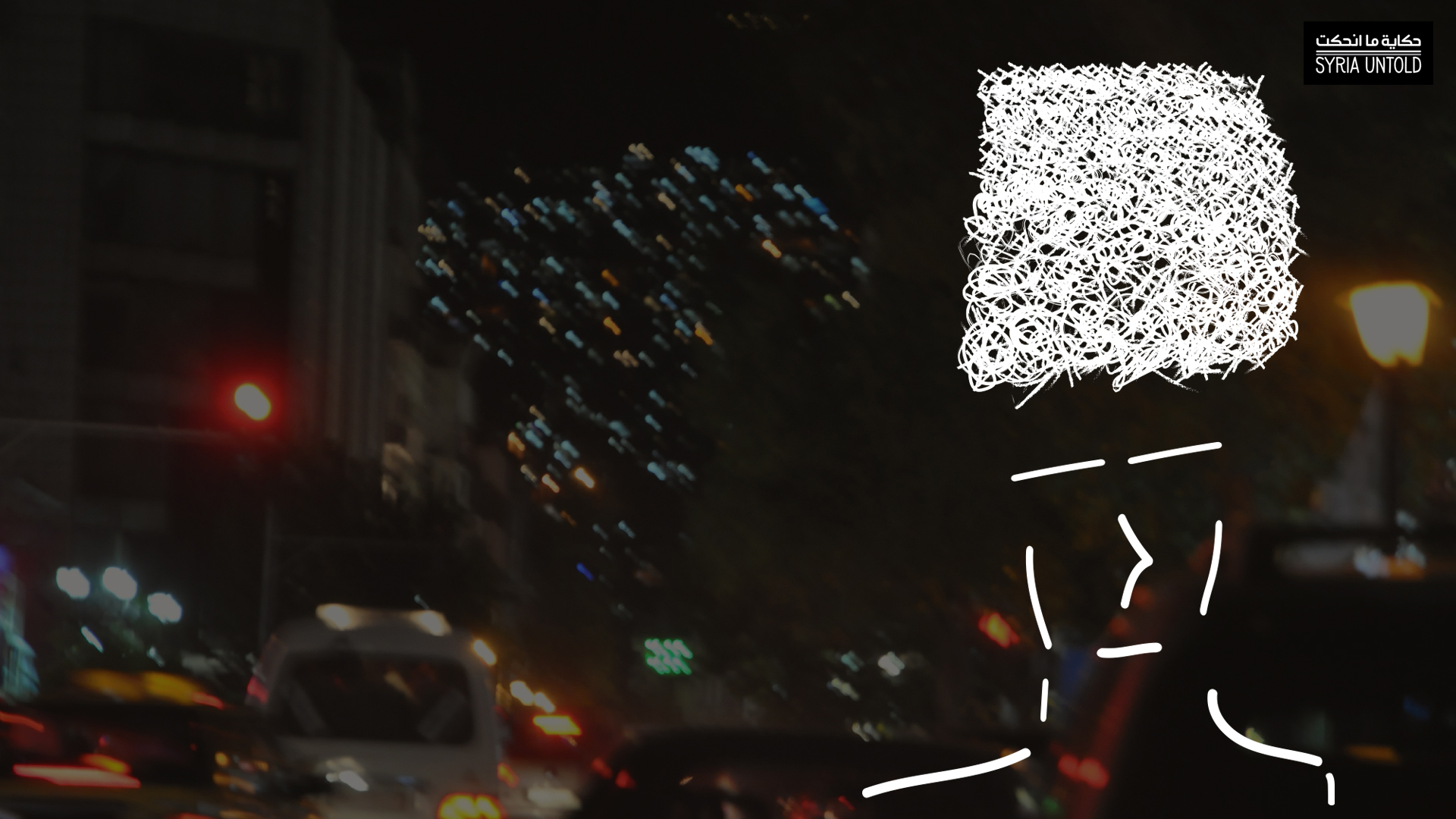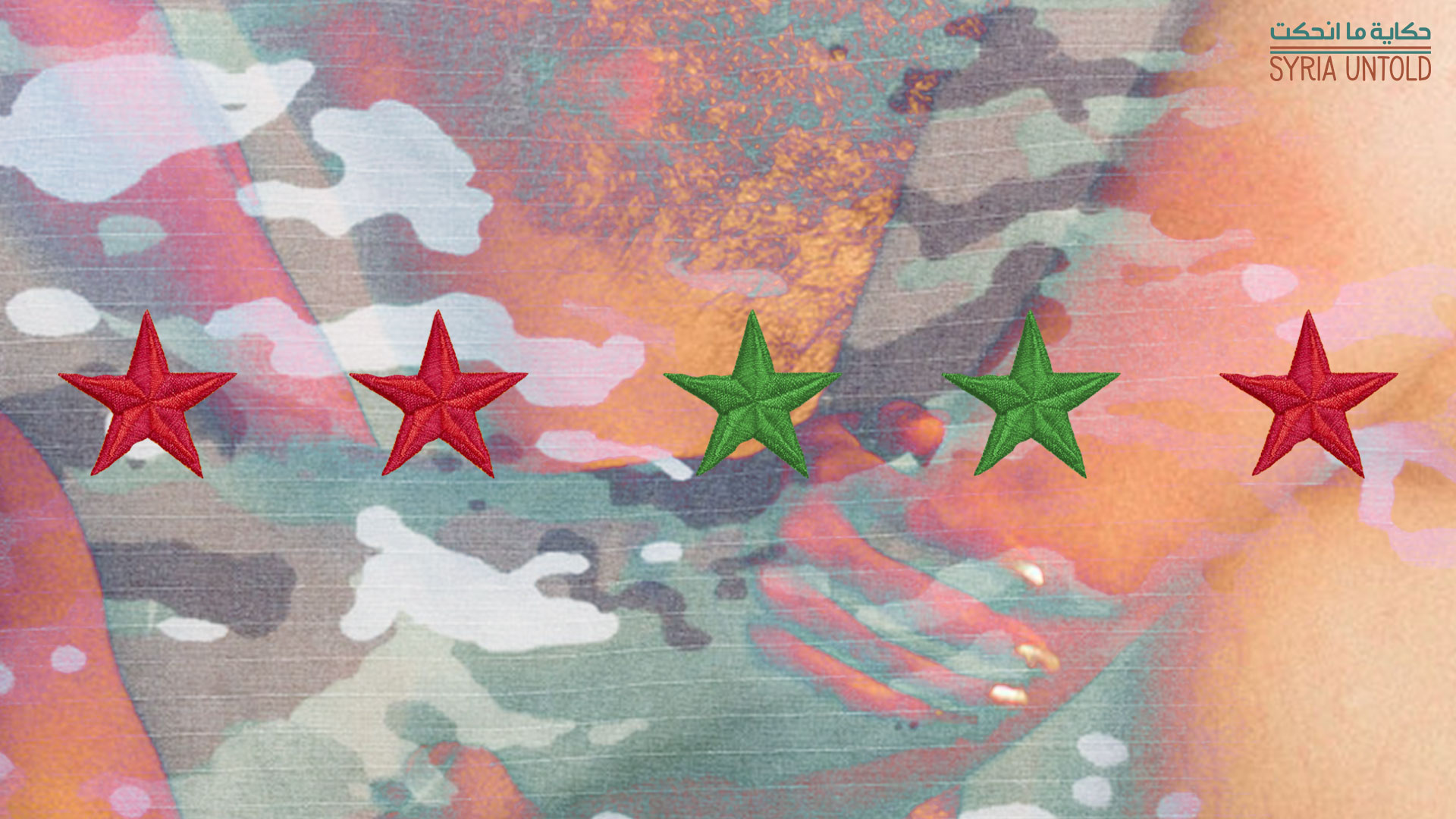This article is part of the second round of our series on LGBTIQ Syria, published and commissioned by guest editor Fadi Saleh. Read this article in Arabic here.
Have you ever heard of Anwar Al Baba?
I can safely assume that most Syrians do not remember this actor, though his name might sound familiar. How have people not heard of Anwar Al Baba, despite the fact that we as Syrians have always studiously watched Syrian TV series and obsessively followed the lives of many of their stars?
Could his character “Um Kamel” be the reason why Anwar Al Baba faded into oblivion? For Um Kamel occupies a bigger part of our memories and has achieved a lingering presence in the Syrian collective consciousness. Many older Syrians might nod their heads approvingly and with a smile once they hear her name. However, if you were born in the 1990s or later, recognizing any of these two names is nothing short of a miracle. So who was Anwar Al Baba? And who was Um Kamel?
Queerness and transness on the Syrian cultural scene
03 June 2022
On childhood, ‘being different’ and memory
10 June 2022
Archimedes’ surprise
The day I first encountered Um Kamel was just another normal day. And yet, that moment of encounter and recognition engraved itself in my memory. It had so much magical potential, which I only unearthed later. This moment belongs to a bygone past in the 1980s, a time characterized by suffocating financial sanctions, the Hama massacre of 1982 and waves of arbitrary detentions targeting anyone across Syria who dared say “no.” Our generation grew up in this decade under the reign of a harrowing silence, doing our best to pave the way into a future without any guarantees.
Through the only available (state-owned) TV channel at the time, I was watching, perhaps for the millionth time, a rerun of Hammam Al-Hana, which was produced in 1968. The show was a cultural cornerstone and had characters that remain engraved in the memories of many Syrians: Ghawwar Al Toshi, Husni Al Burazan, Abu Sayyah, Yassin Bakoush, and, of course, Um Kamel!
In that day’s episode, Um Kamel played a fortune teller, manipulating those who knocked on her door seeking the help of the jinn that she claimed were working for her. She had a Damascene accent. She dressed traditionally and wore a veil, observing her visitors from behind her medical glasses and speaking with a sharp, sarcastic tongue. Despite the brevity of that scene, those few seconds were more than enough for this exceptional woman to draw all of my attention. I laughed out loud every time she spoke.
Having lost myself in the world behind the screen, I was caught off guard by my father’s voice, which brought me back to the living room. He asked me with absolute neutrality: “Did you know that Um Kamel is a man?”
I looked closely again in disbelief. How could this “auntie” be a man? All I saw was a real woman, so real you could swear you had seen her many times before. Perhaps she was one of your neighbors, or a passer-by.
My father continued: “His name is Anwar Al Baba, and he’s an actor!”
The magnitude of my surprise surpassed that of Archimedes’ as he ran out of his bathtub shouting “Eureka, Eureka!” I hadn’t yet recognized that I was “different” from the others, nor did I understand the nature of my sexual orientation or even the meaning of sex. But the information I had just gained from my father made me feel ecstatic. A man and a woman in one body—it was a ray of light that fired up my imagination in an era before any usage of the many letters that now bring together a multitude of colorful communities under their rainbow.
He asked me with absolute neutrality: “Did you know that Um Kamel is a man?”
Returning to the start
Anwar Al Baba was born in Damascus in 1915. He died there too, on January 19, 1992. His father was the singer Husni Al Baba, and they say his uncle was Muhammad Husni, the father of the two icons Soad Hosny and Nagat El-Sagheera.
Anwar had to quit his studies before finishing grade school due to poverty. He worked for three years in the textile industry before getting a humble job at the Prime Minister’s office.
In 1937, he started practicing his hobby, acting. He took on roles in many small plays, performing in private homes and at events. From there, Anwar started participating in bigger theatrical productions in villages until he decided to use his salary to found a theater group consisting of 15 actors.
In the shadow of that flag
13 October 2020
Strategies for rebellion: A queer reading of the Syrian revolution
06 October 2020
A decade on, in 1947, Syria was plagued with cholera. That, combined with the scarcity of women in the acting industry at the time, prompted Anwar to volunteer himself for the “female” role in a radio play meant to raise awareness of the disease.
And so Um Kamel was born out of the cholera outbreak. The character met with so much success and popularity that Anwar eventually played the role for the entire Arabic-speaking world through different media: radio, theater, film and, later, television.
One funny story goes like this: Anwar, in costume and character as Um Kamel, went to do a few performances in Cairo theaters in 1959, during the period of unification between Syria and Egypt. The Egyptian comedian Hasan Fayek liked her and fell for her; he even asked some Syrian actors to mediate between them so that she would accept his marriage proposal. Fayek continued chasing her tirelessly until she ultimately revealed her identity as Anwar Al Baba.
Um Kamel went on to collaborate with some of the most famous TV and cinema stars in the Arabic-speaking world, such as Duraid Lahham in Syria and Ismael Yassine in Egypt. She became an A-list actress.
Um Kamel: A unique phenomenon
I am fully aware of the history of male actors playing female roles, and sometimes only for comedy’s sake. I am also aware that this has been happening since the Ancient Greek and Shakespearean times, and we have seen it in our region as well in recent times, from Yassin Bakoush to Abu Antar (a symbol of masculinity), to Ismail Yassine in Egypt and Mohamed Heneedi. The list goes on.
And yet, Um Kamel remains a very different and distinctive case. She became a main and central character in her own right. You’d see her name, Um Kamel, listed alone on movie posters, in the opening credits, and on theater doors—with no mention at all of Anwar Al Baba.
To me, her presence deconstructed the mainstream, toxic understandings of gender and sexuality that our society strongly believed in: You are either male or female, and there is no third option.
In that sense, Um Kamel is an unprecedented phenomenon. Here we have a man who dressed like a woman in a society that has consistently oppressed and imposed the worst societal, religious and even legal punishments and judgments on gays and lesbians, “those who imitate the opposite gender" and trans people. How did Um Kamel manage to escape all of these restrictions and find a way into people’s hearts? How did she maintain her dominion and even completely swallow her very creator, her name meanwhile becoming so famous in a society that oppresses anyone who dares to break the rules?
Today, I delve deeper into my memory to comprehend Um Kamel’s role and impact on me. To me, her presence deconstructed the mainstream, toxic understandings of gender and sexuality that our society strongly believed in: You are either male or female, and there is no third option. With her, the possibility that backward and dark ideas might seep into and take over my brain disappeared, and she set me free from such chains. I do not need to be one or the other; I can be both at once, or even create a new identity that represents me. I decide who “to be” or “not to be.”
It might seem that I am reading into meanings and interpretations of Um Kamel that are far broader than the scope of her character. Of course, when one watches her work, one could conclude that she does not achieve any actual “queer representation” in the real sense of the term. None of her work discusses gender and sexuality, except, sometimes, for women’s rights and their role in development. Still, I want to shed light on her through a more inclusive lens, because her very existence is a transgression of old-fashioned and normative ideas around gender and sexuality. She serves as a deconstruction of the strict social norms that steer the wheels of everyone’s lives and define their trajectories.
Our Story has not yet been told
Until today, no one has been able to fill the gap that Um Kamel left behind in her absence. There are no similar likable popular characters, and every representation of the LGBTIQ community, whether artistic or exclusionary, only scratches the surface. In these representations, the LGBTIQ community is a battleground for public debates: whether our existence is okay or not okay, genetic or acquired, accepted or rejected, and other binaries that continue to rip our worlds apart and fragment them into puzzles and vague concepts. Everybody talks about you and not to you; they tell you about their experiences with you, while completely ignoring your story. Even in TV series in which I and a handful of other writers wrote LGBTIQ characters, we had to be cautious and conscious of censorship. These characters failed at becoming mainstream references, landmarks of queer representation or topics for public debates, as they simply passed by a public that did not give them any attention or sympathize with their suffocating existential problems. Although there is more production than ever, huge budgets and countless TV channels and online platforms, the result remains the same: I still see myself represented through these screens as an accused person, a victim, a joke, a crime or a sin.
There was only that one representation that held within its folds some truthfulness and tenderness, appearing in the form of a “man dressing up as a woman” whom everyone loved and respected. Everyone laughed with her and not at her. They loved her until she became a reality, whether on purpose or accidentally.
Anwar Al Baba married Syrian author Etidal Rafe and had two daughters with her. I will not entertain the conversation about whether he was a gay man who married under social pressure, or whether his performance of the character Um Kamel was a way for him to express his hidden desires or merely a result of the lack of female actors who would take on the role. All of this is irrelevant. Other people’s sexual identities should not be subject to public debate or analysis anyway.
All that matters is that, when Um Kamel appeared on a regular day on my black and white screen in the 1980s, she unknowingly became a saint in my imagination. She helped me during my loneliness and isolation. Her existence planted a seed that turned into a forest of strength inside of me, in whose shadows I took refuge when I did not have the energy to face unjustified stupidity and oppression.
To me, Um Kamel is part of an ongoing revolution in which we fight publicly for our right to say out loud: “We are here.” It is a revolution that includes many marginalized people, some of whom I know, but millions of whom I have yet to meet. With every step, we continue to experience the bittersweetness of this revolution. We remain one family regardless of our different ethnicities, sects, languages and references. We are here to stay, whether you like it or not, with our colors, laughs, and disappointments.
Thank you, Um Kamel!


